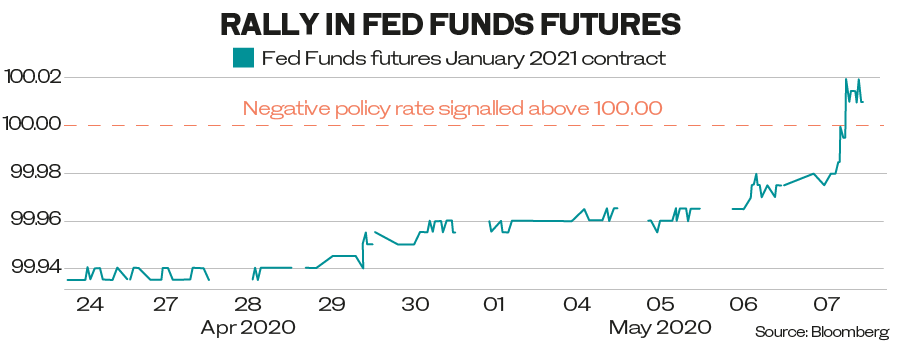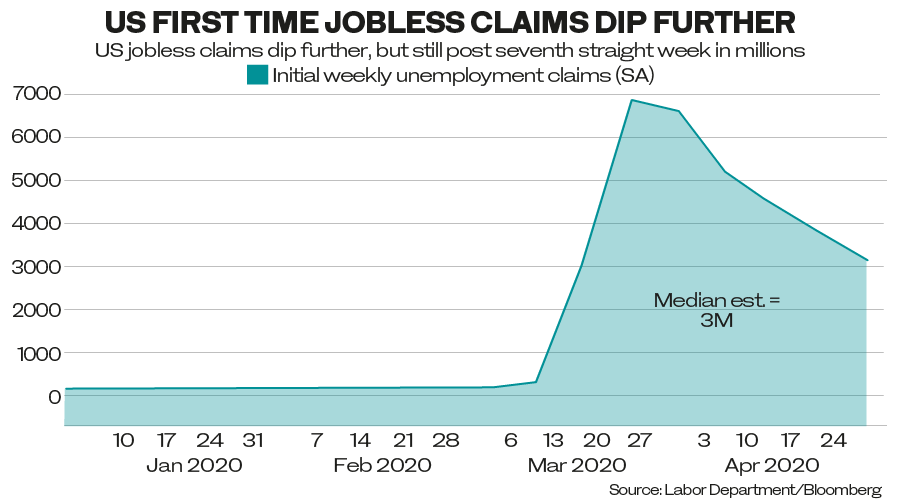What happened:
Stock markets turned risk-on after a positive conference call between US Treasury Secretary Steven Mnuchin and Trade Representative Robert Lighthizer with Chinese Vice Premier Liu He to discuss the implementation of “Phase One” of the US-China trade agreement. Both countries expect to fulfill their obligations under the deal.
April trade statistics for China show a contraction of imports from the US, which could be a roadblock. Despite the harsh anti-China rhetoric regarding the spread of the coronavirus (COVID-19) pandemic, US Secretary of State Mike Pompeo was optimistic on the agreement as long as China made good on promises regarding trade, intellectual property and the opening of its investment markets.
China reported a current account deficit of $297 billion for the first quarter 2020.
The earnings season continues:
Bristol Myers Squibb’s (BMS) revenues skyrocketed by 82 percent to $10.8 billion, which was attributed to the acquisition of Celgene in November 2019. Several BMS pre-acquisition drugs also performed well. The COVID-19 pandemic boosted revenue in the first quarter by around $500 million, with buyers stocking up inventories out of fear of supply chain interruptions. Earnings per share were $1.72, up 56 percent year over year.
ViacomCBS revenues came in at $6.1 billion, down 6 percent, while net earnings fell by 74 percent to $508 million. Advertising revenues were down 19 percent, while content licensing revenues were up 9 percent. Domestic streaming and digital video revenue rose 51 percent during the quarter.
Hilton net income was $18 million and adjusted EBITDA (earnings before interest, taxes, depreciation and amortization) was $363 million for the first quarter. Currency-adjusted system-wide revenue decreased by 228 percent compared to the same quarter in 2019. The outlook for the second quarter is bleak as lockdowns in the major economies of Europe and North America will hit the company hard. Both IHG and Marriott reported similarly pessimistic outlooks, while all of them abandoned guidance.
Siemens posted an operating profit of €1.6 billion ($1.7 billion), down 18 percent compared to the same period last year. Revenues were stable at €14.2 billion. This did not include Siemens Gas and Power/Siemens Gamesa Renewable Energy, which are separated into Siemens Energy. CEO Joe Kaeser said that the entity's initial public offering would take place later this year as scheduled. The company abandoned guidance. Kaeser expects the next quarter to be the worst. He observed that his clients are attempting to regionalize supply chains and voiced particular concerns about India. Of the 24 currently closed factories, 20 are located in India.
ING’s net result came in at €1 billion, down 35.7 percent compared to a quarter ago. Lending was up by €12.3 billion and net deposits by earnings came in at €12.4 billion, reflecting liquidity provided last month. Net customer deposit inflow amounted to €9.2 billion. The bank will take guidance quarter by quarter going forward.

Background:
Equity markets recovered nicely from their March 24 lows. On Thursday, the Nasdaq recovered its losses for the year. The gains are partly fueled by monetary and fiscal rescue packages and do not reflect the situation in the real economy.
They are also in contrast to government bond markets. The yields for 2-year and 5-year treasury have reached new lows, giving rise to concerns about US interest rates turning negative. This could be a reflection of investors turning to safe assets rather than the Fed really envisaging negative interest rates, particularly when looking at Japan and Switzerland. In both cases, negative interest rates only had a temporary effect. The yen and the Swiss Franc (two classic safe haven currencies) kept appreciating each time after rates had been lowered.
The pandemic has clearly shown the safe haven status of both US treasuries and the US dollar, which means that it may be appropriate for the Federal Reserve to learn lessons from across the Pacific and the Atlantic.

Where we go from here:
US first-time jobless claims rose by 3.2 million in the week ending April 1. While increases declined since the week ending March 27, they still exceeded 3 million week after week.
The US department of labor released the non-farm payroll data earlier on Friday. Job losses amounted to 20.5 million for the month of April, bringing the unemployment rate up to 14.7 percent. This is the highest level since the 1940s, wiping out a decade of job gains in the US.
San Francisco Fed President Mary Daly expects the economy to contract in 2020 and recover in 2021 with the caveat that it depends on the spread of the virus as well as the development of a vaccine or medicine to keep the spread in check.
The question remains as to when and how the job market will recover. It will depend on the shape and speed of the economic recovery. We should focus on how many high-quality jobs will return and whether jobs in the less skilled and l ess compensated gig economy will grow disproportionately.

— Cornelia Meyer is a Ph.D.-level economist with 30 years of experience in investment banking and industry. She is chairperson and CEO of business consultancy Meyer Resources.
Twitter: @MeyerResources


























